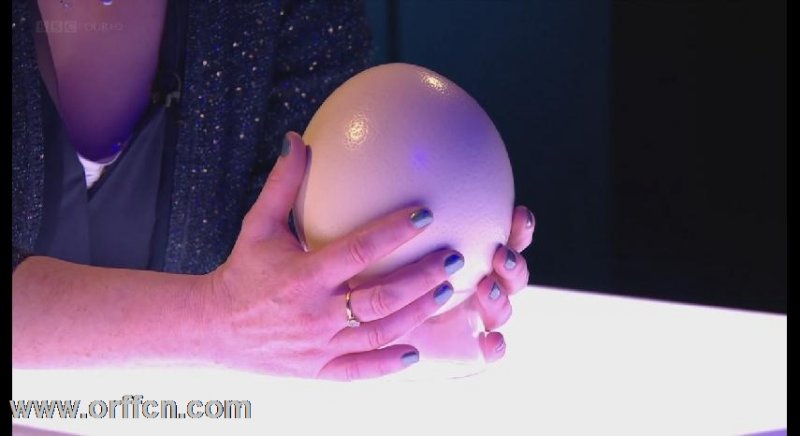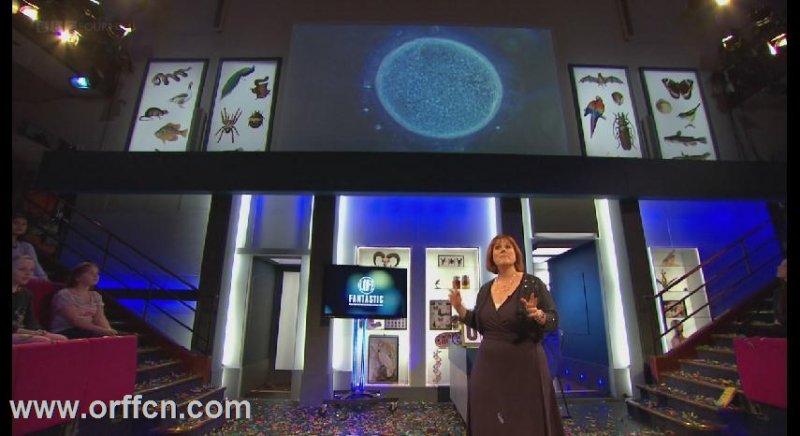


BBC 英国皇家科学院圣诞讲座 2013 Life Fantastic 全3集 英文字幕
英国皇家科学院圣诞讲座 Royal Institution Christmas Lectures 是英国皇家科学院(The Royal Institution of Great Britain,成立于1799年)在每年的圣诞期间举办的一个讲座。
它首次举办于1825年,已有近200年的历史,其中只因第二次世界大战中断了四年。讲座每年都有一个主题(以自然科学为主,也有其他)。讲者里有不少赫赫有名的科学家,如迈克尔·法拉第(1827-1860共计19次。实际上这个圣诞讲座就是法拉第的主意),卡尔·萨根(1977),理查德·道金斯(1991)等,以寓教于乐的方式向大众(尤其是年轻人)传播科学知识。
三集内容简介:
1) Where Do I Come From?
Dr Alison Woollard from the University of Oxford reveals just how the incredible transformation from a single cell into a walking, talking, multi-trillion-celled organism that we call the human body takes place. Using live experiments she shows how each of those trillions of cells knows what to do, when to do it and how to organise themselves to carry out vital specialist roles in the body. In the lecture theatre we witness the creation of life, following the 'real-time' embryonic development of a tiny worm on its journey to adulthood. Alison is passionate about what these tiny creatures can tell us about developmental biology. Joining her on this journey is Sir Paul Nurse, who won his Nobel Prize for his work on yeast. Such organisms may seem a long way from us, yet by understanding how cells divide and function, they have helped scientists make significant advances in the treatment of cancers.
2) Am I a Mutant?
Dr Alison Woollard unravels the mystery of why evolution by natural selection has given such stunning diversity on our planet. Charles Darwin understood that species adapt and change, but how they did so remained a puzzle to him. Alison reveals that diversity has come about by genetic mutation, with life revolving around the survival of the fittest mutant. Darwin himself appears - for the very first time in the 188-year history of the lectures - in the form of a ghostly apparition. After explaining Darwin's theory, Alison reveals to both him and to the audience what Darwin never knew. Alison's guest on this lecture is fellow Oxford biologist, Professor Peter Holland. Together they explore the crucial genes responsible for mapping out an animal's body-plan. We find out what happened when a developing lizard's body eventually ended up as an entirely different animal altogether - a snake.
3) Could I Live Forever?
Dr Alison Woollard tackles a question that has intrigued scientists and natural philosophers for centuries - why do we die? The cycle of life and death affects all cells, but Alison reveals a shocking truth: that 'cell death' plays an important part in life. It enables the development and survival of most multi-celled organisms from hedgehogs to humans. Why does a mayfly's life last just a few minutes when an elephant can live for 80 years? Developmental biology and genetics give us new insights into how cells work and how we can use this knowledge to improve or even extend our lives. Some animals, like the naked mole rat, are well on the way. Alison artificially 'ages' the audience using a computer program and meets a patient who has had their eyesight restored with cutting-edge stem cell therapy. Joining Alison to discuss the serious ethical implications of such medical and scientific advances is Lord Winston. They confront the potential dangers of tinkering with evolution.


